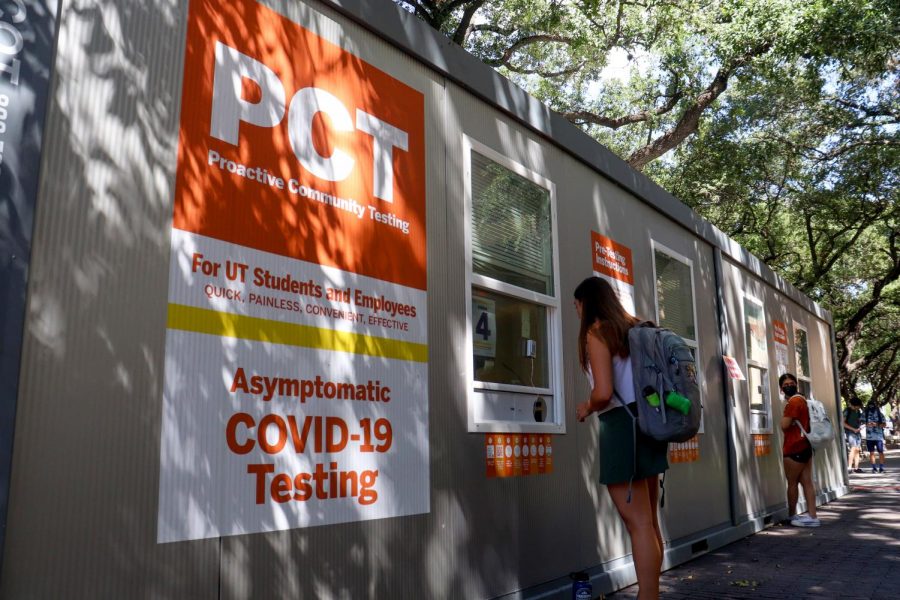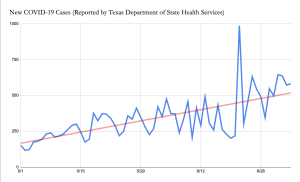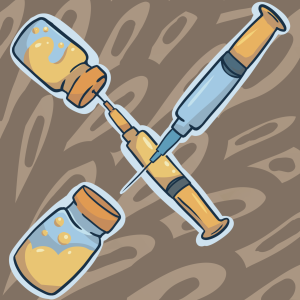UT-Austin discontinues COVID-19 dashboard
July 14, 2022
UT retired its COVID-19 dashboard on July 1 — six months after it reported the University hit daily positive case records — due to a lack of self-reporting and an increase in at-home testing.
The dashboard no longer represents cases in the UT community as the number of individuals testing at home with self-test kits increases, Amy Young, chief clinical officer for UT Health Austin, said in an email.
The dashboard noted that UT trends closely followed city and state trends, and recommends referring to Austin Public Health and the Centers for Disease Control and Prevention for current local COVID-19 data.
“The decision was made at the beginning of the summer when on-campus testing decreased in volume; however, we’ve always known that there would come a day when the dashboard would wane in utility and need to be retired,” Young said. “We have determined that as levels on campus are not distinct from the community levels, data from APH and CDC dashboards can be used in the future.”
Antonio Rodriguez, medical laboratory science and nutrition senior, said he checked the Protect Texas Together dashboard three or four times a week during fall 2021 when he was concerned about his possible compromised immunity.
“It almost seems like those who are immunocompromised or immunosuppressed are being overlooked right now,” Rodriguez said. “Even if those numbers are, I suppose underestimated, I still feel that this is a feature that many people would constantly use.”
Immunity from previous COVID-19 variants may wane as new omicron subvariant BA.4 and BA.5 cases rise. Experts encourage people to continue consistent testing and maintain booster shots. Waning immunity obtained from January’s infections put individuals at greater risk for reinfection, The Daily Texan previously reported.
“It’s a shame that UT is doing away with this because there’s this barrier out there,” Rodriguez said. “We don’t know how damaging it could be. The fact that immunocompromised individuals might have even a more narrow margin of safety — it’s disappointing.”















